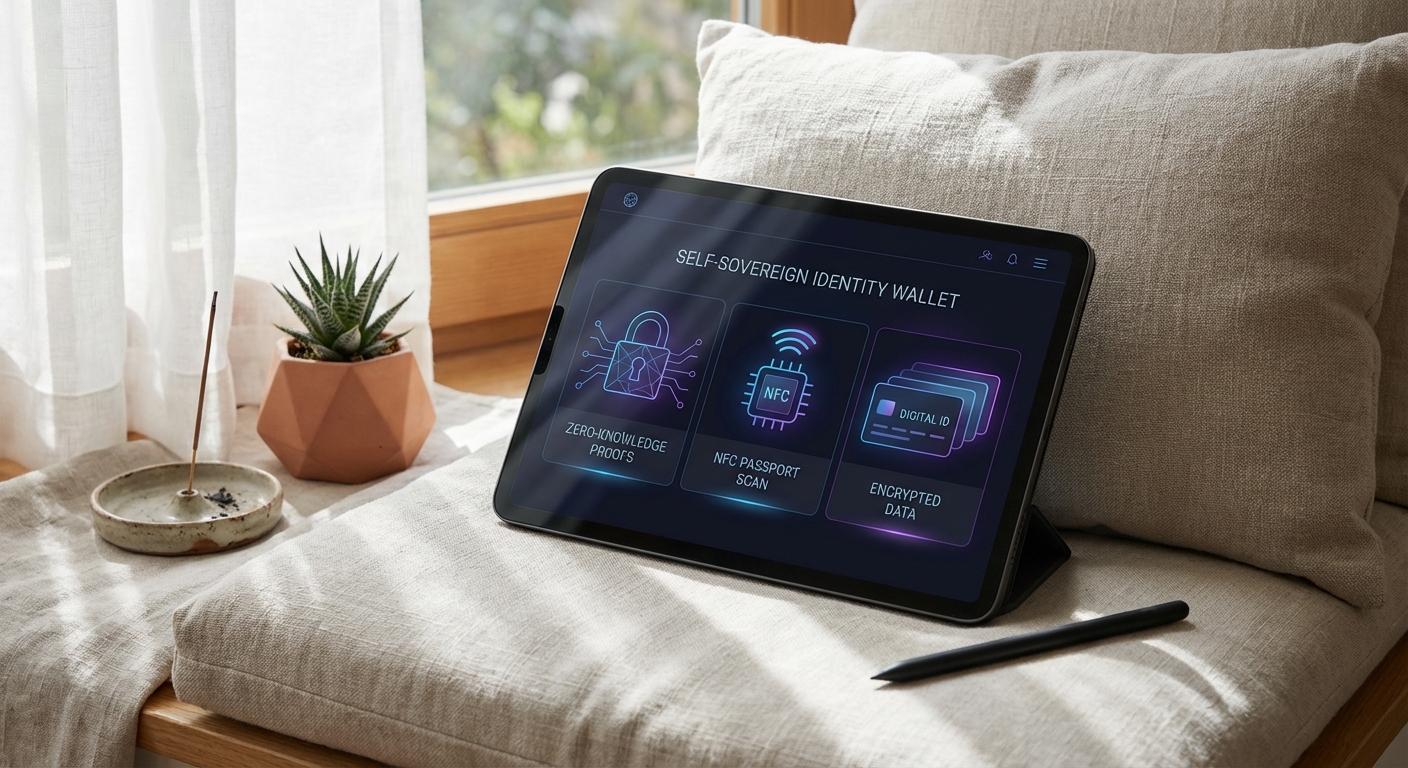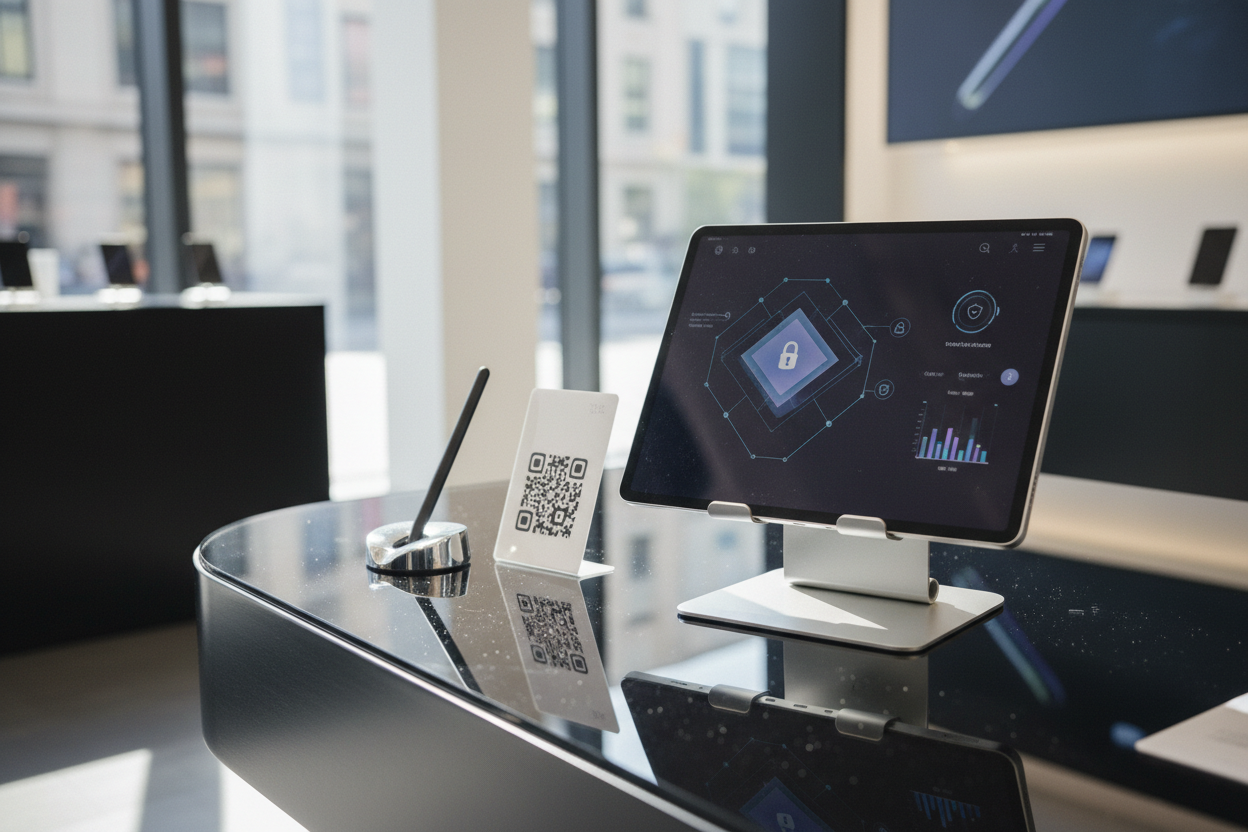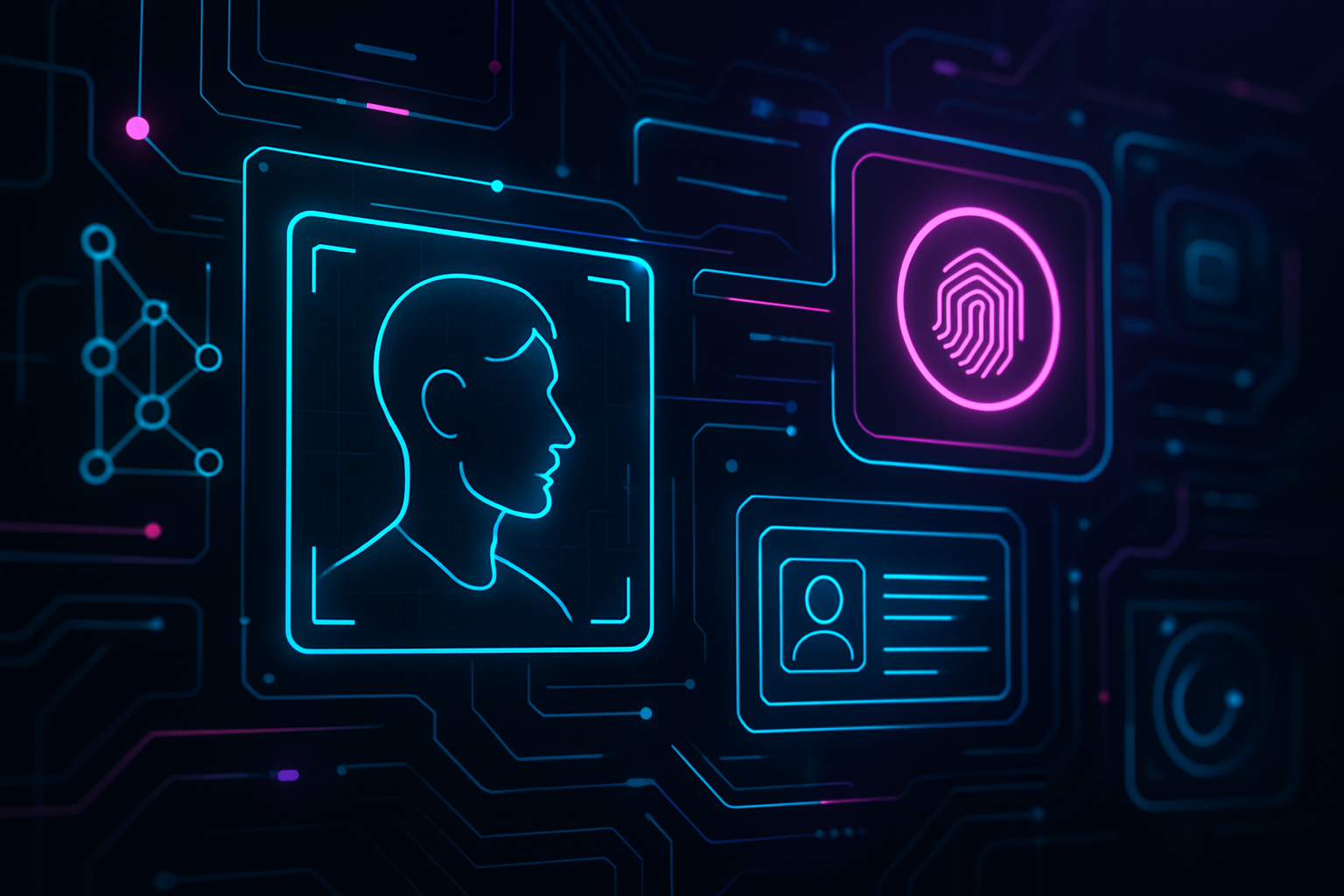
Web3’s promise of self-sovereign identity has long been hampered by repetitive Know Your Customer (KYC) processes and fragmented onboarding flows. Traditional digital identity models force users to hand over sensitive data repeatedly, increasing risk and friction. The idOS Network is redefining this paradigm, delivering a decentralized identity layer that enables true portable identity in Web3 and one-click KYC across decentralized applications (dApps).

idOS Network: The Decentralized Identity Layer for Web3
At its core, idOS Network serves as an open, composable infrastructure for reusable identity verification. Instead of siloed KYC events, users complete verification once and store their encrypted credentials on a decentralized storage network. These credentials can then be selectively shared with any participating dApp, wallet, or DeFi protocol, eliminating the need for repeated onboarding and reducing attack surfaces.
The idOS architecture is comprised of three main components:
- idOS Storage Network: Decentralized nodes store user data as encrypted, verifiable credentials.
- Access Management Protocol: Users control who can access their data, with granular permissions and time-locked access features.
- Economy Network: (Upcoming) Incentivizes participation and governs access with the IDOS token at its center.
This approach puts users in control, allowing them to grant, manage, or revoke access to their identity data at any time. The result is a living, reusable layer for digital identity, not a static one-time event.
One-Click KYC: Streamlining Web3 Onboarding
For developers and users alike, the most tangible benefit of idOS is its one-click KYC capability. After a single verification with a trusted provider (such as Fractal ID), users receive portable credentials that can be reused across any integrated dApp. This eliminates redundant compliance checks, shortens onboarding times, and enhances privacy by minimizing unnecessary data exposure.
dApps integrating idOS gain instant access to a pool of pre-verified users while remaining compliant with global regulations. For users, this means seamless access to DeFi platforms, NFT marketplaces, and stablecoin apps without re-uploading documents or re-verifying identities.
Portable Identity: User-Controlled Data Across dApps
The concept of portable identity in Web3 goes beyond mere convenience. With idOS, users own their data and decide exactly what to share, when to share it, and with whom. This granular control is enforced cryptographically, access can be granted or revoked at any moment via the Access Management Protocol.
This model aligns with self-sovereign identity principles and addresses one of Web3’s biggest bottlenecks: fragmented user experiences caused by repeated onboarding. By making identity reusable and interoperable, idOS unlocks new possibilities for cross-chain composability, privacy-preserving reputation systems, and zero-knowledge integrations.
- Reduced friction: Complete KYC once, transact everywhere
- Enhanced privacy: Share only what’s necessary
- User empowerment: Full control over personal data
- DApp growth: Lower onboarding barriers drive adoption
The idOS Network is already supported by a robust consortium including NEAR, Gnosis, Aleph Zero, and Kwil, positioning it as a chain-agnostic solution for the next phase of decentralized identity innovation. For more technical details and the latest updates, visit the official idOS site.
Interoperability is central to the idOS Network’s design. By leveraging decentralized identifiers (DIDs) and verifiable credentials, idOS enables seamless identity portability across any dApp, wallet, or blockchain ecosystem that supports its open standards. This composability not only removes technical silos but also fosters a more user-centric, privacy-first Web3 environment.
Key Benefits of idOS Network for Web3 Identity
-
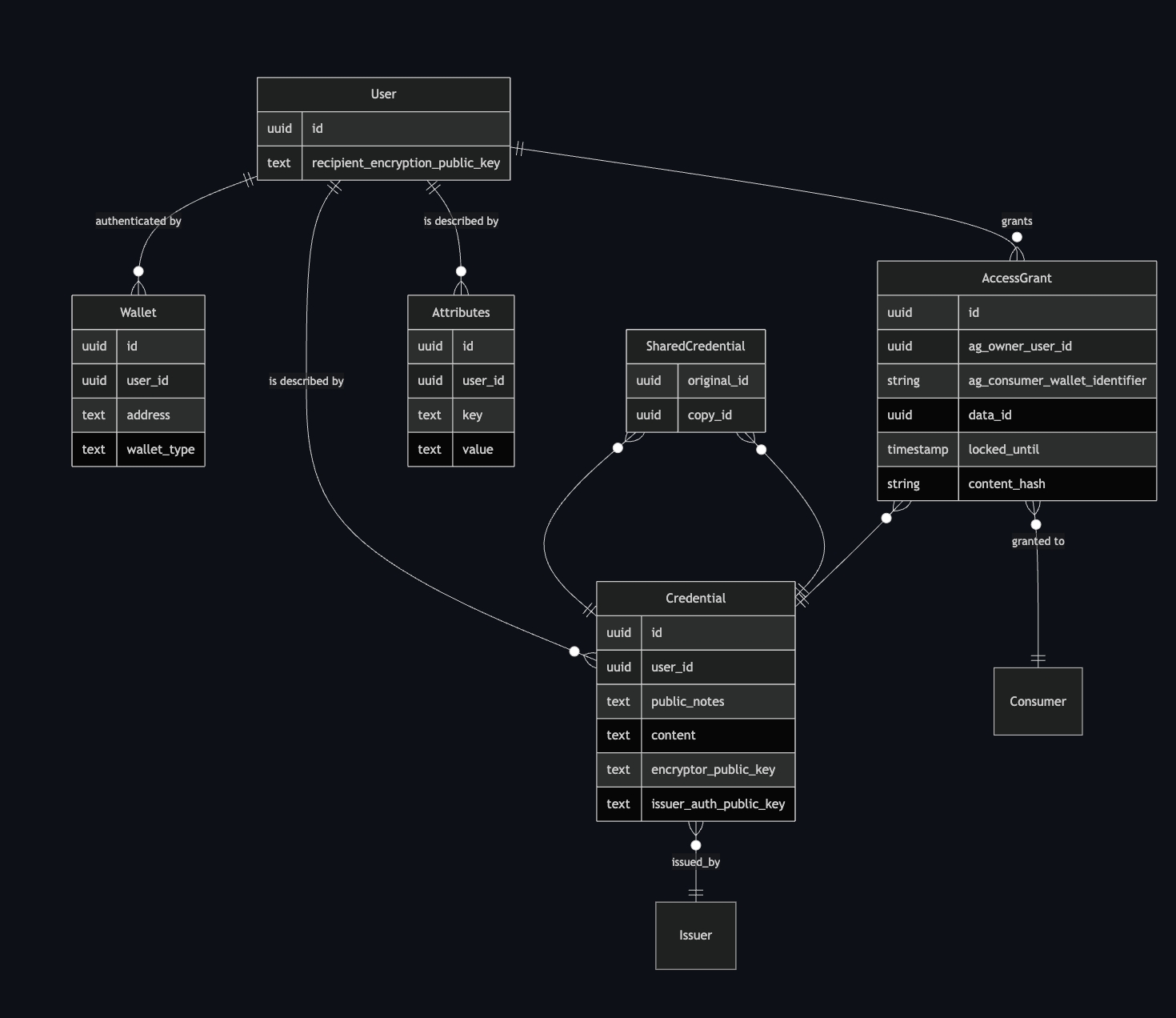
One-Click KYC Across dApps: Users complete KYC verification once and reuse it seamlessly across multiple Web3 applications, eliminating repetitive onboarding processes.
-
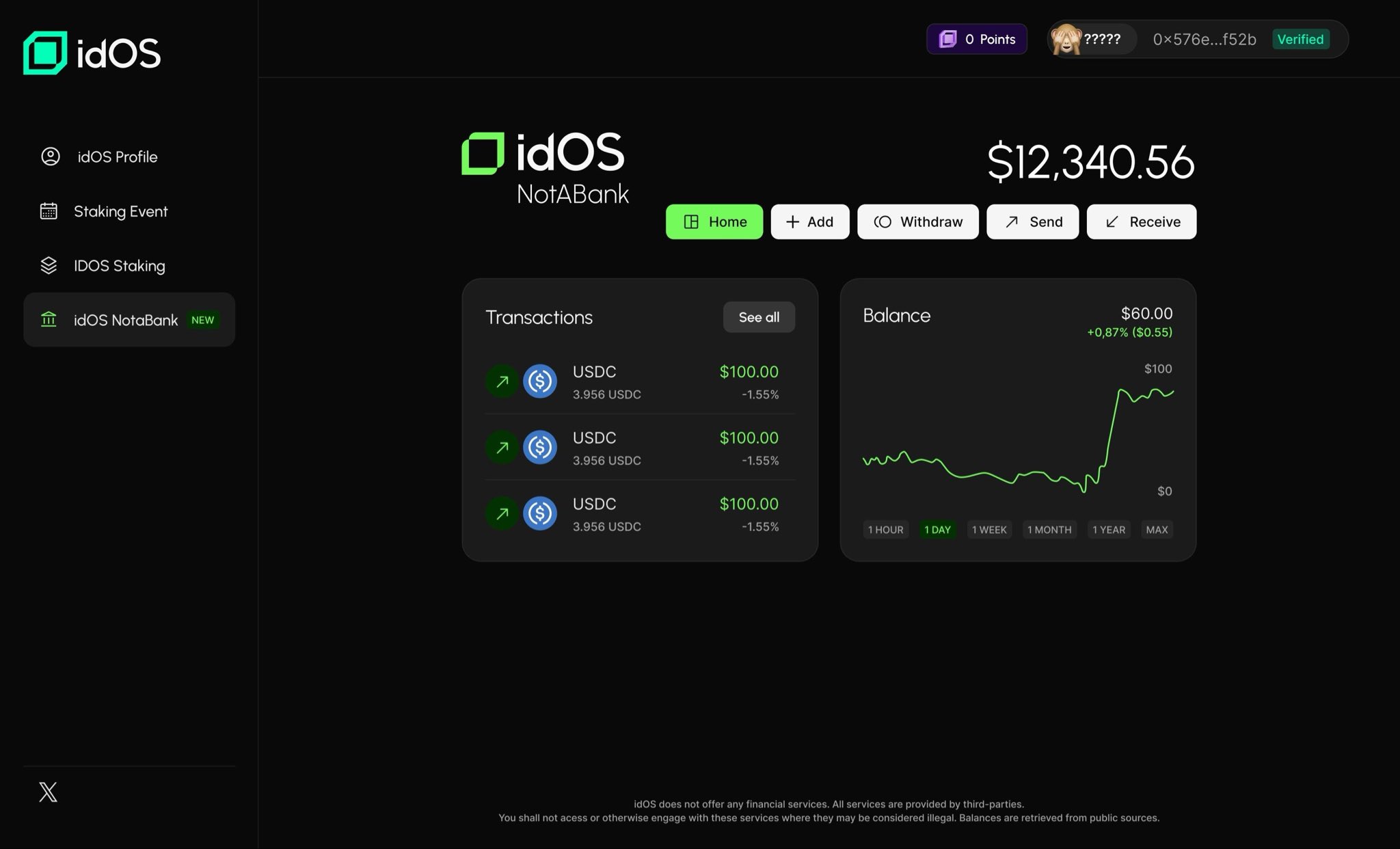
Self-Sovereign Identity Control: Users own and manage their encrypted identity data, deciding who can access it, when, and for how long, ensuring privacy and autonomy.
-
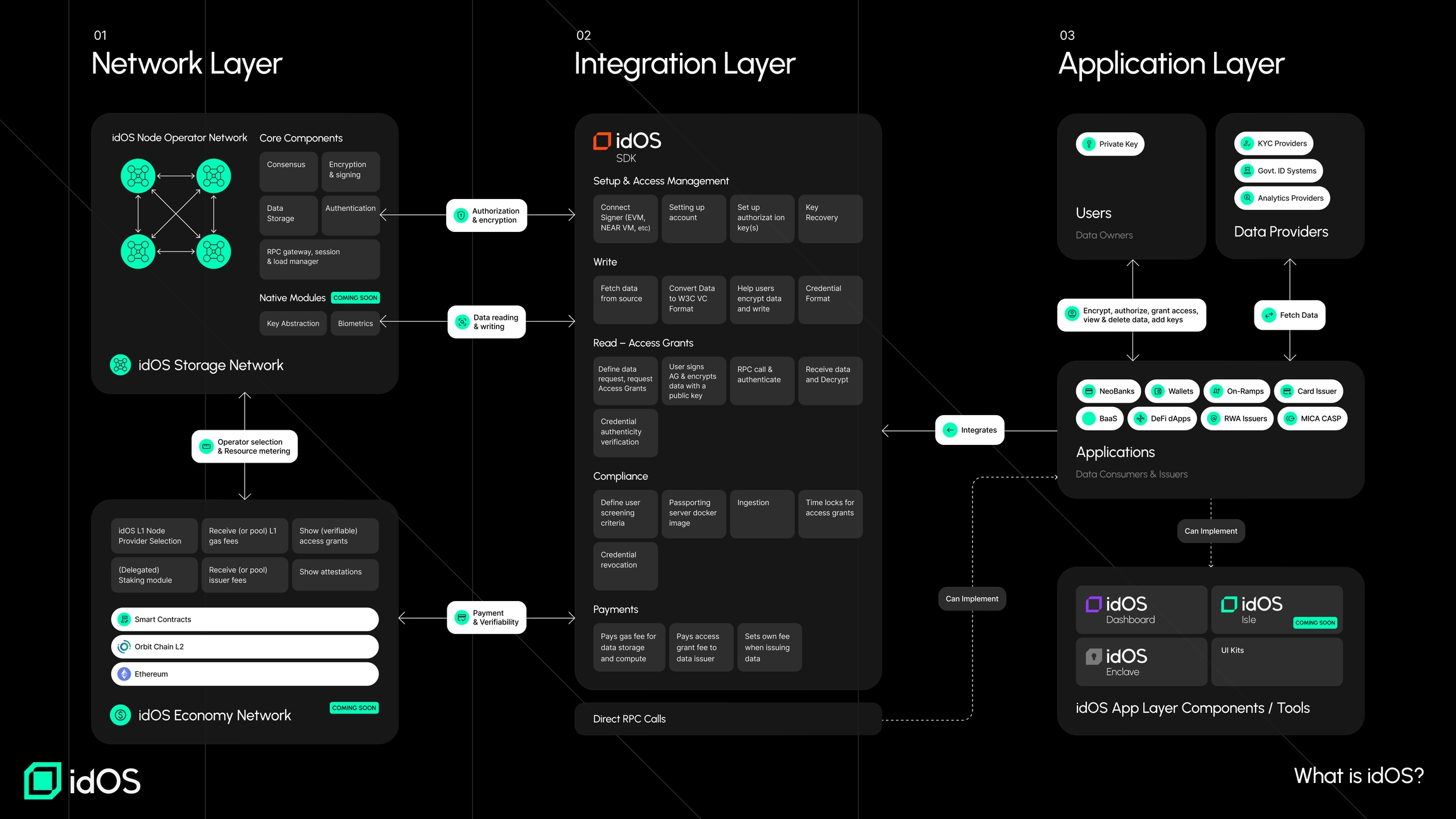
Decentralized & Secure Data Storage: Identity data and verifiable credentials are stored on a decentralized network of encrypted nodes, reducing risks of centralized breaches.
-
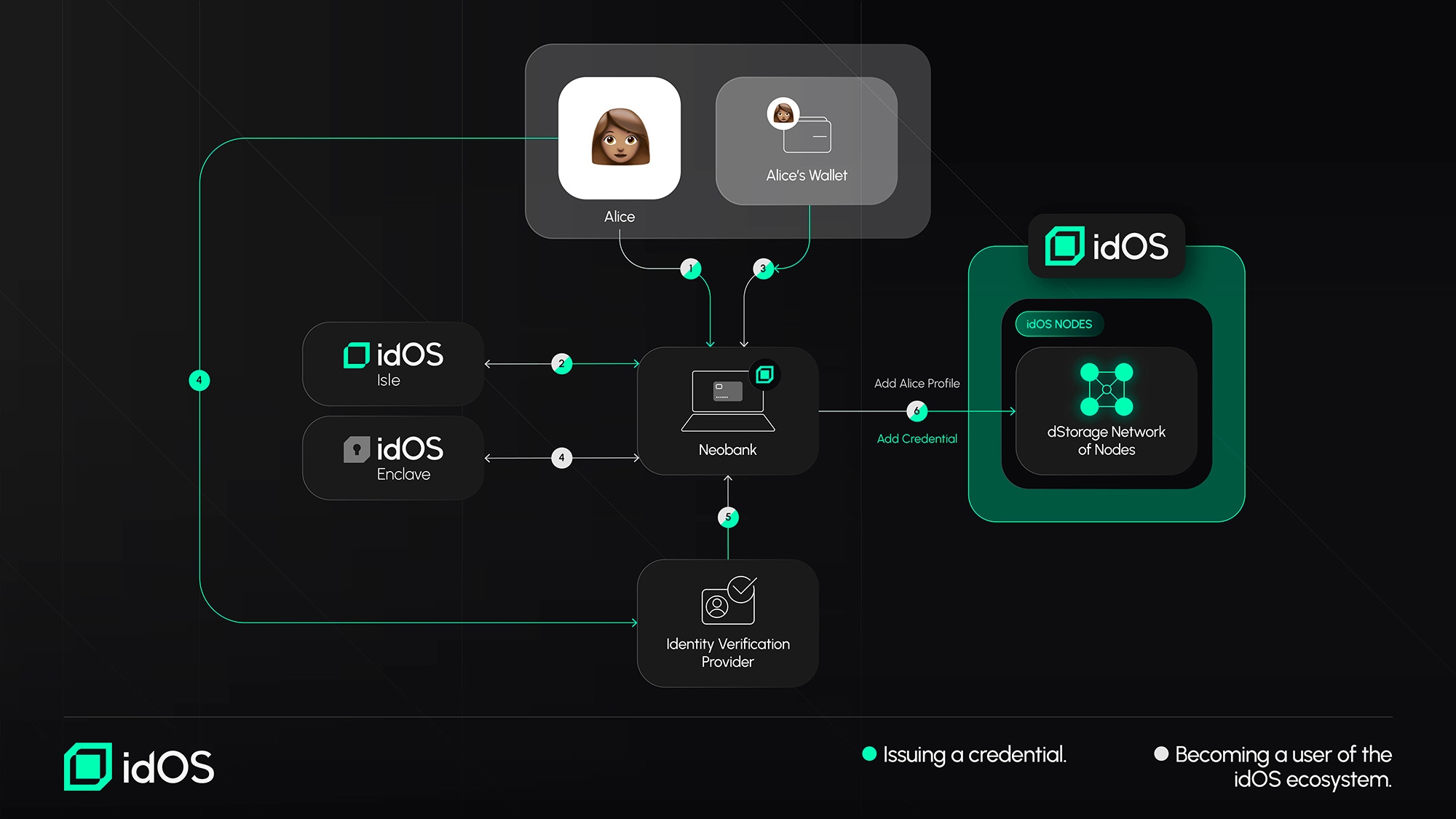
Granular Access Management: The Access Management Protocol allows users to grant, manage, and revoke permissions—including advanced features like time-locked access—directly from their dashboard.
-
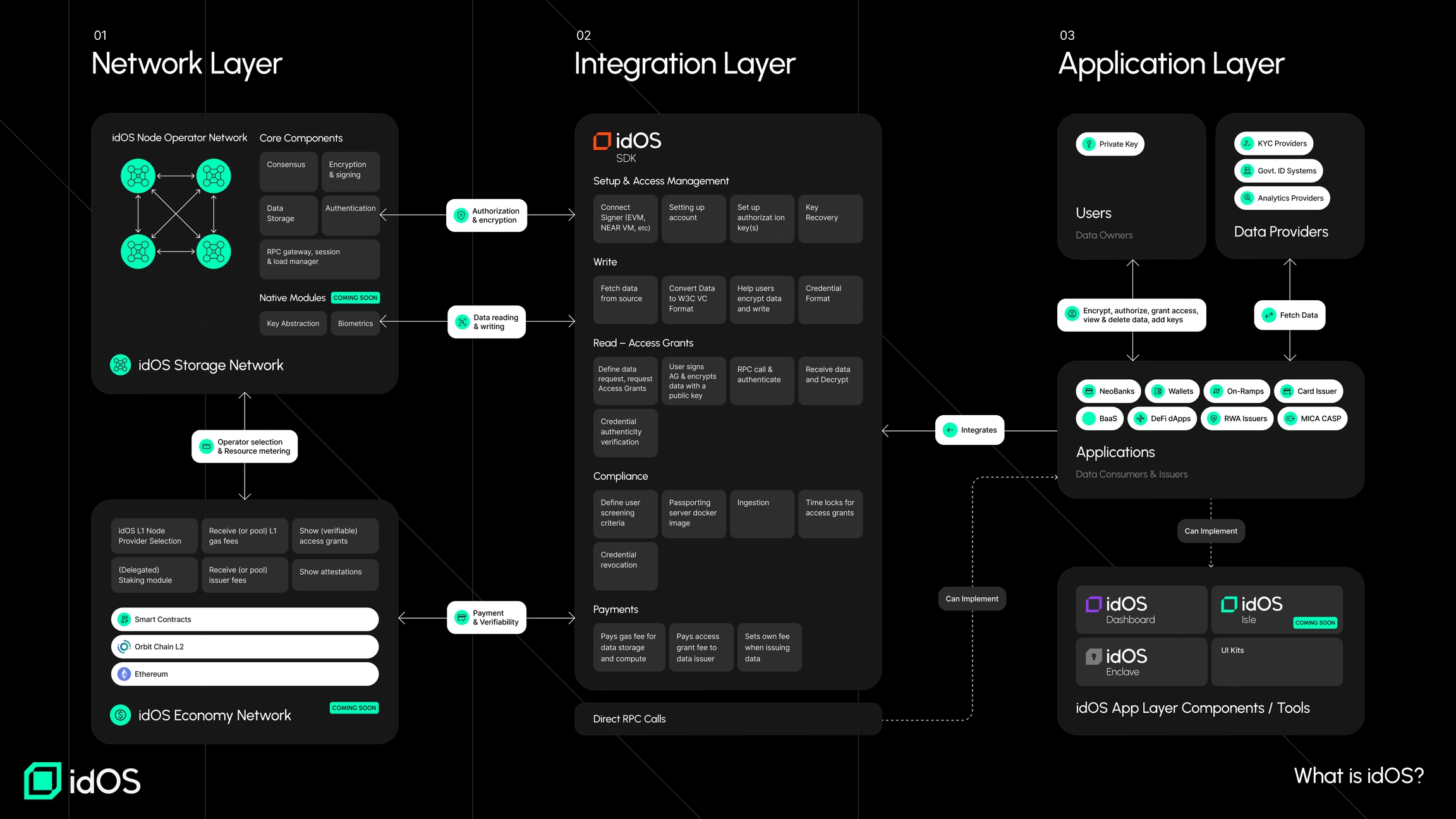
Regulatory Compliance Without Compromising Privacy: dApps can meet KYC/AML requirements while users retain full control over their personal information, supporting compliant yet privacy-preserving onboarding.
-
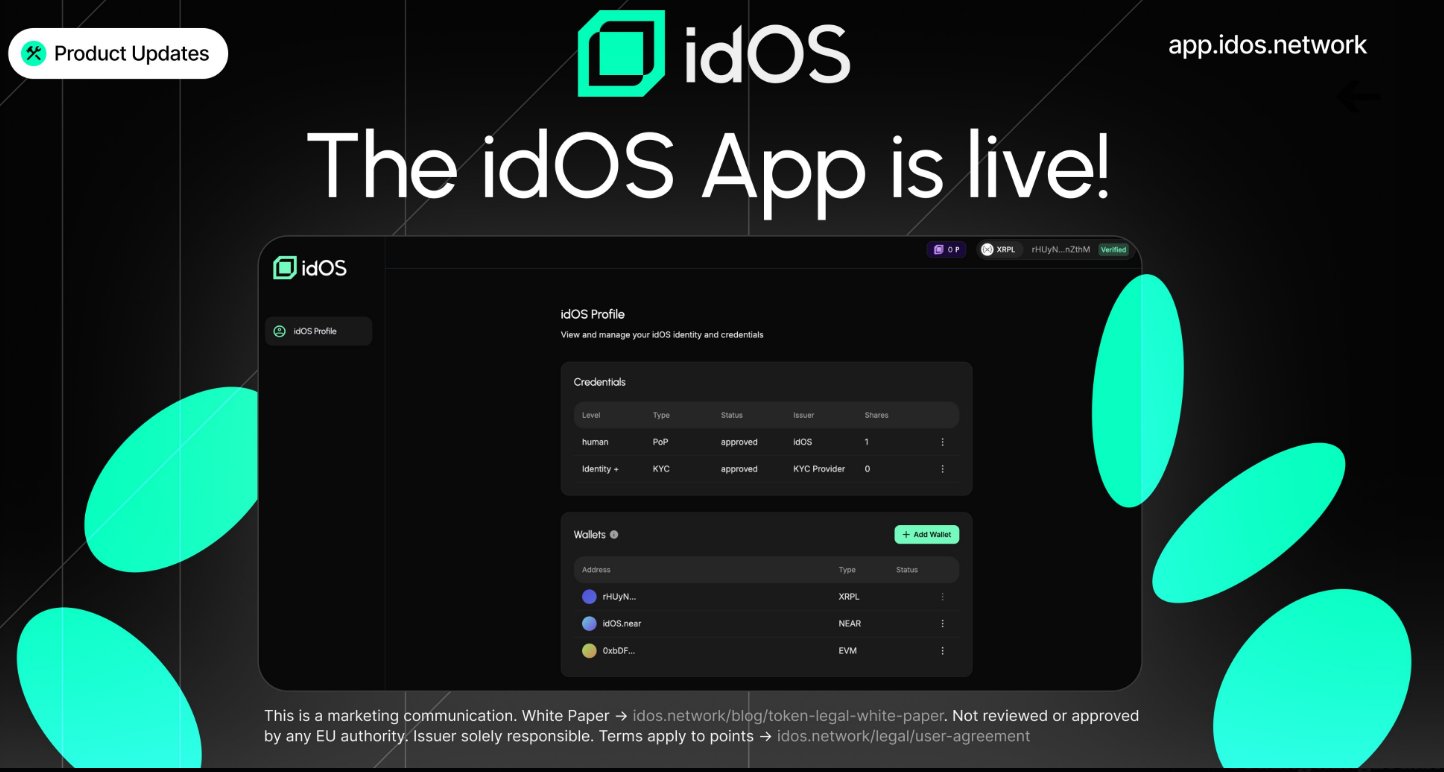
Chain-Agnostic and Open-Source Integration: idOS is designed to be composable and interoperable across multiple blockchains, supported by partners like Fractal ID, NEAR, Gnosis, Aleph Zero, and Kwil.
As the decentralized identity landscape matures, regulatory compliance remains a critical challenge. idOS addresses this by ensuring that all KYC credentials are cryptographically verifiable and tamper-proof, while still allowing users to retain sovereignty over their data. The upcoming Economy Network, powered by the IDOS token, will introduce incentive structures for both users and service providers, further aligning interests across the ecosystem.
For developers, integration is straightforward via well-documented SDKs and APIs. The Access Management Protocol grants granular permissioning, including advanced features such as time-limited access or revocable sharing. This means dApps can request only the attributes they need (for example, age verification), with users approving each request in real time, no more blanket data exposure.
“Web3 can’t grow if users keep redoing KYC. Portable identity fixes that. ”
This vision is already being realized in live deployments. Stablecoin platforms use idOS for frictionless onboarding; NFT marketplaces leverage reusable credentials to verify creators without repeat checks; DeFi protocols tap into pre-verified user pools to streamline compliance and reduce fraud risk. The result is a dynamic identity layer that adapts to diverse use cases without sacrificing privacy or security.
Future-Proofing Digital Identity: idOS and the Path Forward
The long-term implications of portable identity on Web3 cannot be overstated. With idOS at the center, we see a shift from static onboarding events to continuous, composable digital presence, where reputation, compliance, and access are managed on the user’s terms.
This architecture is inherently extensible: zero-knowledge proofs (ZKPs) can be layered on top for selective disclosure; cross-chain bridges allow credentials to move freely between ecosystems; community governance ensures ongoing transparency and adaptability as standards evolve.
Ultimately, by abstracting away repetitive compliance hurdles and placing control back in the hands of users, idOS Network paves the way for mass adoption of decentralized applications. The next generation of self-sovereign identity wallets will not just store credentials, they will orchestrate privacy-preserving interactions across all of Web3.
To explore technical documentation or participate in upcoming developments, visit idos.network. For a deeper dive into how portable identity transforms onboarding and compliance in Web3 dApps, review this MEXC feature.





